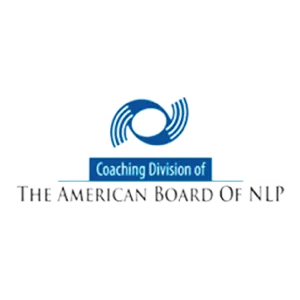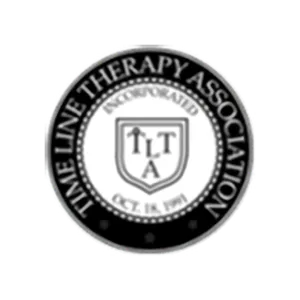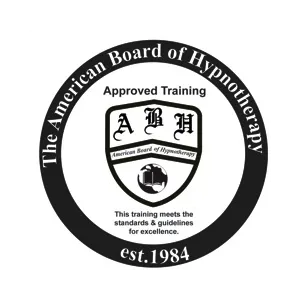With proper training, becoming a hypnotherapist is an achievable professional choice for many individuals. Professionals already working in fields like psychiatry and medicine can definitely benefit from this training, but so can people who want to improve their lives by learning self-soothing techniques.
What Does a Hypnotherapist Do?
Hypnotherapists use different relaxation techniques to draw patients into a trance-like state that makes the patient more susceptible to their suggestions. They then use various pre-discussed treatment methods to address specific issues and help patients achieve their goals.
Hypnotherapy is most successful as a treatment for phobias and anxiety disorders. However, it can also serve as a motivator for patients looking to lose weight, quit smoking, or stop substance abuse through a change in habit and routine.
In addition to teaching their patients cognitive-behavioral coping skills, hypnotherapists also provide a safe and guided environment. When patients can reevaluate past experiences in a new and objective light, they can find clarity.
What Is The Process of Becoming a Hypnotherapist?
To become a qualified and reliable hypnotherapist, you will need to complete a course credited by the National Hypnotherapy Society. Most certification programs require you to attend several hours of training workshops, followed by individual training with a credited professional.
While many people who choose to undergo hypnotherapy training are already registered medical professionals, therapists, clinicians, and psychiatrists that is not necessary. The best way to become a qualified hypnotherapist is to put in the work and learn the proper techniques from a reliable training course.
Hypnotherapy Courses Offered By NLP Top Coach
NLP’s team of experienced hypnotherapy experts has designed two premium courses to assist people who wish to learn and practice hypnotherapy. With immersive live training sessions both in person and online, you can gather all the tools you need to: add hypnotherapy to your existing practice or teach hypnotherapy to other aspiring practitioners in your area.
All courses are certified by the American Board of Hypnotherapy and add a lot of professional value to your resume.
Hypnotherapy 2 in 1 Certification Training
A 3-day highly intensive formula, the hypnotherapy 2-in-1 certification course teaches participants tools and techniques they can use to help patients change behavioral patterns. The 4-step approach begins with theory, followed by a practical demonstration, then opportunities for hands-on practice, and final a quick de-brief session.
Master coach Sebastian Leblond has trained more than 40,000 professionals and has a decade of experience introducing beginners to the practice of hypnotherapy. So, what can this course do for you?
For therapists, psychologists, and doctors, this certification gives them the chance to add hypnotherapy to their repertoire. The more tools you have in your box, the better prepared you are to offer a complete range of services to your clients.
For people who want to become professional coaches, the course offers a comprehensive understanding of what hypnotherapy is and how it works. The 2-in-1 course focuses on common issues like how to quit smoking, reduce stress, change habits, and improve performance.
Hypnotherapy Train the Trainer Certification
NLP’s Train the Trainer Certification deals specifically with professionals who want to become coaches themselves. With this internationally recognized credential, you’ll be able to start your own business, train students, and devise courses that adhere to the ABH guidelines.
While it is recommended that you take this course with the 2-in-1 course for a more comprehensive understanding of how hypnotherapy works it isn’t essential. This course focuses on how you can continue to help others by spreading the benefits of hypnotherapy.
Hypnotherapy Certification
Proper hypnotherapy certification means that the courses you’re pursuing have been approved by an official body like the:
- American Association of Professional Hypnotherapists (AAPH)
- American Society of Clinical Hypnosis (ACSH)
- Society for Clinical and Experimental Hypnosis (SCEH)
- American Board of Medical Hypnosis
- American Board of Psychological Hypnosis
- American Hypnosis Board for Clinical Social Work
Official accreditation lets you practice hypnotherapy on clients or teach courses that can prepare participants for fieldwork.
How Much Can You Make Becoming a Hypnotherapist?
While hypnotherapy is an extremely profitable career path, potential earnings are based entirely on your experience and qualifications. Certified hypnotherapists can charge clients a monthly rate between $400 to $800, depending on the years of field experience they have. With a stable roster of 5 clients, this can add up to $24,000 to $48,000 a year.
For therapists and other mental health professionals having experience with hypnotherapy definitely provides more treatment options to offer patients. According to the US Bureau of Labor, recreational therapists have a median salary of $47,940.
Key Skills of Great Hypnotherapists
A soothing voice, active listening, patience, and the ability to remain calm under stressful circumstances are some of the key skills for hypnotherapists. The basic job of any therapist is to create a safe environment where patients can feel comfortable and explore deep-rooted fears and insecurities.
Good hypnotherapists are able to relate to a wide variety of people and guide them through these various challenges. Many clients may be mistrustful of hypnotherapy because of inaccurate representations in the media. The ability to soothe with sensitivity and patience is vital to the field.
Therapeutic Hypnosis Techniques
While there are three main stages to hypnosis, therapists may use a variety of techniques to get to the same end goal.
Stage 1 is induction or the trance-like state, with methods including relaxation techniques like controlled breathing, visualization, handshake techniques, or insertive eye contact.
Stage 2 is the hypnotic suggestion phase. Indirect suggestions are when the therapist leaves the patient in charge and only makes subtle suggestions to guide them through the experience. Direct suggestions include explicit commands and are often considered unethical.
Other advanced therapeutic hypnosis techniques include the swish pattern (switching between modalities like light and dark), misdirection (reframing a narrative through visualization), or regression to cause (exploring the root cause of the traumatic event).
Stage 3 is the journey out of the trance. The use of hypnotic triggers, like the sound of a bell, or the clap of hands, can help implement corrective measures.
Psychology or Psychotherapy Experience
While it is not necessary, psychology or psychotherapy experience coupled with certified hypnotherapy techniques make the ideal combination for any professional in the counseling field. Hypnotherapists deal directly with the subconscious mind and the root causes of trauma and fear.
Psychotherapy experience trains professionals who can best identify those causes through direct and active communication. Additionally, psychologists are best trained to proceed with the appropriate amount of sensitivity when dealing with negative experiences and thought patterns.
Patience
Hypnotherapy is a slow process of gentle suggestions and responses. Patients are often uncovering past traumas, deep-rooted fears, and phobias so therapists must practice an extreme level of patience.
A long-term treatment approach, hypnotherapy results in slow but lasting progress, and hypnotherapists must learn how to celebrate the small victories with their clients.
Active Listening
For a patient to unlearn any phobia or negative pattern, the hypnotherapist’s suggestions must address the root cause of the issue. Patients are rarely able to identify the source of their problems. That’s why they go to therapy. It is the hypnotherapist’s job to actively listen to a client recount various parts of their lives and pick up on the moments that lead to the issue at hand.
Get Started on Your Path to Becoming a Hypnotherapist
To get started all you need to do is find a certified hypnotherapy course like the ones offered by NLP. These will teach you all the skills and techniques you need to become a hypnotherapy professional, as well as, the credentials to responsibly practice on patients. You can also look up resources online and train your basic skills.








